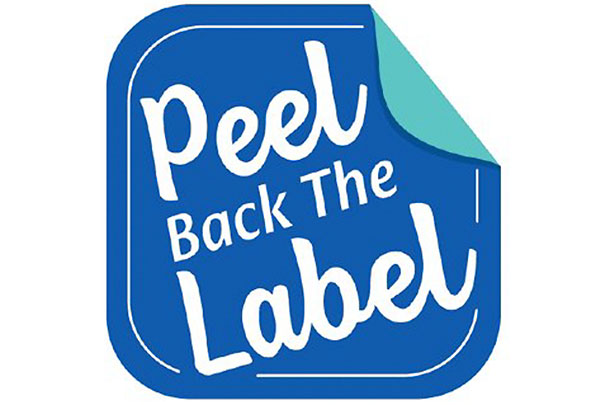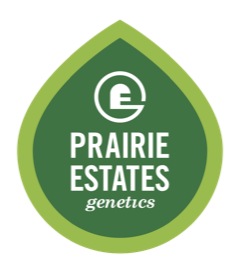The National Milk Producers Federation (NMPF) launched a “Peel Back the Label” campaign to focus consumer attention on “fear-based” food labels.
“Consumers have a right to both truth and transparency in food labeling,” said Jim Mulhern, NMPF president and chief executive officer. “We launched this campaign to help consumers peel back the label on deceptive food marketing in the name of profits.”
The labeling trend is particularly concerning for the dairy industry, threatening the availability and use of production management tools and technologies, according to NMPF.

“America’s dairy farmers strongly support open, honest and transparent engagement with consumers,” said Mulhern. “The deceptive labels and fear-based marketing increasingly used by some food manufacturers damages consumer trust and jeopardizes the safe, sustainable farming practices that have enhanced farm productivity over the last 20 years.”
In its press release, NMPF said food manufacturers are increasingly turning to “free from” labels, adding to consumer confusion in grocery aisles. Examples include “no high fructose corn syrup,” “GMO-free” or “hormone-free,” which play on consumers food safety fears and misconceptions.
NMPF cited a Consumer Reports National Research Center survey which showed 70 percent of consumers look to front-of-label claims when making food purchasing decisions.
The “Peel Back the Label” campaign includes a watchdog website to call out food companies utilizing ”free from” labels and marketing campaigns. Prominent dairy companies Dean Foods and Dannon are on the list.
Dean’s TruMoo website acknowledges GMOs are safe, but its advertising campaign carries the tagline, “No GMOs, No Worries.”
Dannon launched its “Dannon Pledge” in 2016, working to convert three yogurt brands – Dannon, Danimals and Oikos – to be made with non-GMO ingredients. Through partnerships with its dairy farmer suppliers and third-party audits, the company also said it would source milk from cows fed non-GMO feeds.
NMPF and other farm organizations responded last summer, saying the company’s decision was “the exact opposite of the sustainable agriculture that you claim to be seeking.”
Dannon responds to label campaign
Dannon, citing consumer demand and growth in yogurt sales, contends non-GMO labeling has benefited its business partners, including its dairy farmer milk suppliers.
“We continue to be surprised that we are on the receiving end of criticism about our providing choices that consumers are looking for and our efforts to continue to grow America’s enjoyment of dairy products, including yogurt,” said Michael Neuwirth, senior director of external communications for DanoneWave, Dannon’s parent company.
“Regarding GMO crops, we believe the currently approved GMOs are safe,” Neuwirth said. “Furthermore, we believe that sustainable agricultural practices can be achieved with or without the use of GMOs. However, given the growing consumer preference for non-GMO ingredients and food in the U.S. and with the support of our farmer partners, we are beginning to provide products that address this consumer demand with Non-GMO Project verified products.”
The “Peel Back the Label” website invites consumers to stay informed by signing up for email updates, provides information sources for consumers making food-buying decision, and will include ways for consumers to tell their own stories with their social networks.
Other examples cited on the website are:
• Hunt’s, which added a “GMO-free” label to its canned tomatoes, even though there is no such thing as a genetically modified tomato currently on the market.
• Florida’s Natural’s Non-GMO Project certification to its orange juice labels, despite the fact there are no commercially grown, genetically modified oranges.
• Himalania Rock Pink Salt adding a Non-GMO Project certified label, even though salt could never be GMO because it is a mineral and has no genes to modify.
Labeling standards sought
In late August, NMPF filed comments with the USDA’s Agriculture Marketing Service, recommending a new food labeling standard covering foods containing bioengineered ingredients should focus on providing consumers accurate information, while discouraging misleading marketing tactics or meaningless absence claims.
NMPF suggested that only two designations be used to disclose bioengineered foods: “contains bioengineered ingredients” and “may contain bioengineered ingredients.” It also insisted that any disclosure be “non-disparaging” to bioengineering technology.
In its comments, NMPF said it supports a strict, science-based approach in determining how foods made using bioengineering should be regulated.
There is “irrefutable scientific evidence that such foods are safe and not materially different from their conventional counterparts,” said Mulhern. Too many food companies utilize “fear-mongering” to vilify food biotechnology, as they seek to profit from the consumer confusion surrounding its use, he said.
Giving farm animals grains developed through biotechnology has no effect on the meat and milk derived from those livestock, therefore “dairy foods are not genetically modified products and therefore there is nothing to label,” Mulhern noted. ![]()
PHOTO: Courtesy of NMPF.

-
Dave Natzke
- Editor
- Progressive Dairyman
- Email Dave Natzke






